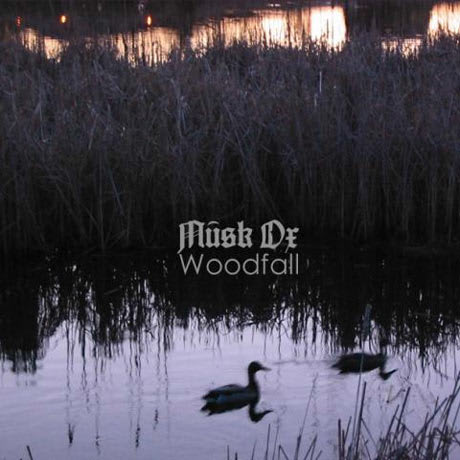The Musk Ox I was first introduced to was beautiful in its relative simplicity — a lone classical guitar capturing (as founder Nathanaël Larochette so aptly described it) the acoustic interludes embedded in metal songs, those softer moments that, in juxtaposition, make the genre's heaviness all the more powerful. Several years later, Musk Ox hasn't abandoned that aesthetic and conceptual (or practical) connection to the metal of bands like Opeth and Agalloch (Musk Ox earned opening slots for two dates on Agalloch's most recent tour and Larochette performed on their new album, The Serpent and the Sphere). But on the group's second release, Woodfall (a single musical work in five parts), there's also a sense that Musk Ox has developed a stronger sense of its own identity.
As Woodfall begins, it takes a moment or two for the individual voices — now including cello and violin — to make sense as an interrelated whole, but there's a confidence and assuredness to this new configuration that makes it hard to maintain any scepticism. I hear less folk here and more classical, less "nature" and more "cosmos" (the titles for each of the five parts underscore this cosmic aspect), and any musical inspirations have been fully assimilated. Despite its relative softness, Woodfall refuses to work as background music; there's too much going on for the album to come together at the subliminal level, a reminder that complexity (both emotional and aesthetic) doesn't have to bang you over the head to demand your attention.
(Independent)As Woodfall begins, it takes a moment or two for the individual voices — now including cello and violin — to make sense as an interrelated whole, but there's a confidence and assuredness to this new configuration that makes it hard to maintain any scepticism. I hear less folk here and more classical, less "nature" and more "cosmos" (the titles for each of the five parts underscore this cosmic aspect), and any musical inspirations have been fully assimilated. Despite its relative softness, Woodfall refuses to work as background music; there's too much going on for the album to come together at the subliminal level, a reminder that complexity (both emotional and aesthetic) doesn't have to bang you over the head to demand your attention.
